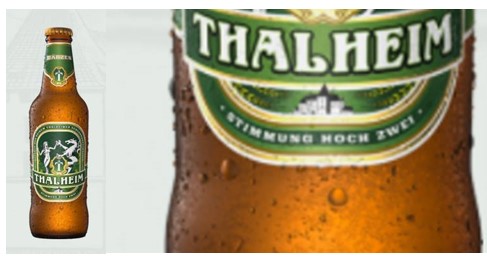Inspired by my co-blogger Agnieszka Sztoldman’s August post on Teva’s headache over slogan (EU) trade marks, and the mood-lifting granting of protection to the slogan “STIMMUNG HOCH ZWEI” in Austria (see details below), this is to provide an overview on the protection of slogans and taglines in recent Austrian case law.
As any other trademarks, slogans need to be perceived as indicators of commercial origin by the relevant public. Obviously, slogans must not be descriptive for the goods or services they designate. They can be registered as trademarks if they express an objective message, even a simple one, and are still capable of indicating to the consumer the commercial origin of the goods or services in question. That can be the case, in particular, where those marks are not merely an ordinary advertising message, but possess a certain originality or resonance, requiring at least some interpretation by the relevant public, or setting off a cognitive process in the minds of that public. It seems to help if the slogan is famous (case C-398/08, AUDI AG vs. OHIM – VORSPRUNG DURCH TECHNIK”, at paras 57 to 59), which is often not the case of course (for details on the “Audi test”, refer to Agnieszka Sztoldman’s blogpost Teva’s headache over slogan trade marks.)
In particular, it must be ascertained whether an advertising slogan contains elements which, in addition to its obvious advertising message, enable the relevant public to memorise it easily and immediately as a distinctive mark for the goods or services designated.
Slogans that previously met the threshold of protection under Austrian law included
- (2011) Doc around the clock for medical services, also as it is a reference to the famous 1950ies song
- (2013) WONDERFUL TONIGHT for personal care products and cosmetics,
- (2014) SHIFTING THE LIMITSfor metals and technical equipment and services,
- (2016) Magic Mountains(but not “real mountains”, see below) for services in the field of tourism, or
- (2018) STIMMUNG HOCH ZWEI („mood2“, or „mood to the power of two“) for beers and alcolic drinks.
Slogans that were denied protection as direct and easily recognisable statements about the goods and/or services or as a common expression or greeting included
- (2011) Echte Berge (“real mountains“) for travel services, hotel services, etc.
- (2015) SICHER OHNE KONSERVIERUNGSMITTEL („safe” OR “certainly without conservants“)
- (2016) WEIL UNSER HERZ FÜR HOLZ SCHLÄGT („Because our heart beats for wood“) for wood and wood-working
- (2018) LUST AUF ZUHAUSE (“keen on home”),
- (2019) WILLKOMMEN ZU HAUSE (“Welcome at home”)
- (2019) SAG JA ZUM JAHRESAUSGLEICH („Say yes to the year-end adjustment”) for services of a tax consultancy, or
- (2020) SEE BRILLIANTLY for goods and services in classes 5, 9, 10, 37, 41.
Interestingly, the Austrian Supreme Court (OGH) is often less strict than the Austrian Patent Office (first instance) and the Higher Regional Court Vienna (OLG Vienna – second instance), and regularly overturns their decisions in favour of trademark applicants Austria has an administrative – judicial course of appeal in trademark registration proceedings from the Austrian Patent Office to the OLG Vienna to the OGH.
For instance, the OGH held the mark EINFACH LEBEN to be distinctive for various household items because its meaning was ambiguous, namely both “easy (or simple) living” as well as “just live” (OPM 11. 7. 2012, OBm 2/12,). The OGH held Die Grüne Linie (“the Green line”, OPM 23.5.2012, OBm 1/12) to be “complex, iridescent and imprecise” and thus distinctive for goods in classes 3 and 4, contrary to the lower instances. This “ambiguity approach” was, however, criticized in doctrine, and meanwhile, it is mostly established that an ambiguous meaning does not save a mark from being either descriptive or non-distinctive.
However, in its STIMMUNG HOCH ZWEI („mood2“) decision (OGH 23.8.2018, 4 Ob 46/18 w), the Supreme Court was rather generous again: While the OLG Vienna held “Mood to the power of two” to be an exclusively (positive) description of the (positive) effect of the consumption of the goods thus designated, the OGH countered that the word “mood” can trigger ambiguous and diverse associations. The following mathematical term “to the power of two” would require a thought process in order to be recognised as such and understood to mean a potentiated, i.e. a particularly good “mood”. Thus, protection was granted (also) for beers and alcoholic drinks.
A villain who thinks that the consumer of a beer labelled with the trademark would first think of mood-enhancing substances in connection with alcohol consumption! Rather, as the OGH points out, alcohol consumption (and even more so in the current confinement where we may only consume drinks at home 😉 ) can also lead to depressive moods. Hence, a distinctive slogan – cheers!

Snippets from https://www.thalheimerheilwasser.at/
In conclusion, the protection of slogan trademarks in Austria is rather difficult, as everywhere, but still a bit easier than it is for EUTMs. To defend that a slogan has the required minimum distinctiveness, it may be worth going all the way to the OGH, who often has a more liberal approach to the distinctiveness test. I am curious to learn what the courts or other bloggers may have to add to the topic!
_____________________________
To make sure you do not miss out on regular updates from the Kluwer Trademark Blog, please subscribe here.


